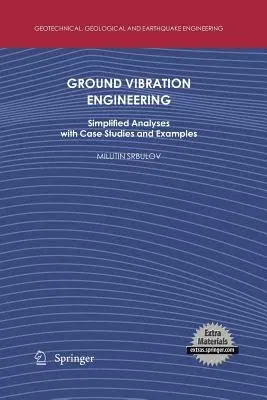Milutin Srbulov
(Author)Ground Vibration Engineering: Simplified Analyses with Case Studies and Examples (2010)Paperback - 2010, 5 September 2012

Qty
1
Turbo
Ships in 2 - 3 days
In Stock
Free Delivery
Cash on Delivery
15 Days
Free Returns
Secure Checkout

Part of Series
Geotechnical, Geological and Earthquake Engineering
Print Length
233 pages
Language
English
Publisher
Springer
Date Published
5 Sep 2012
ISBN-10
9400732732
ISBN-13
9789400732735
Description
Product Details
Author:
Book Edition:
2010
Book Format:
Paperback
Country of Origin:
NL
Date Published:
5 September 2012
Dimensions:
23.39 x
15.6 x
1.35 cm
ISBN-10:
9400732732
ISBN-13:
9789400732735
Language:
English
Location:
Dordrecht
Pages:
233
Publisher:
Weight:
358.34 gm